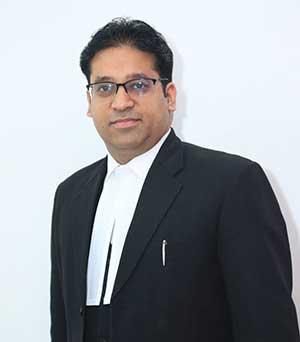'Nobody expected it to become a landmark judgment.'
'Because the Supreme Court has expanded the definition of family and included single parents, same sex parents, etc, the scope of looking at families has enhanced.'

In a landmark judgment, the Supreme Court recently declared that same-sex parents, single parents and blended families deserve equal treatment, thus widening the definition of family from the conventional or typical to unconventional and non-typical.
The Supreme Court made this observation while making a ruling in favour of Deepika Singh, a nurse.
Justice Dr Dhananjay Y Chandrachud, the justice who wrote the order, remarked that 'the concept of a family both in the law and in society was that it consisted of a single, unchanging unit with a mother and a father and their children....
'This assumption ignores the fact that many families do not conform to this expectation, hence family could be defined by various configurations of adults occupying the roles of primary caretakers with both biological and nonbiological children....' Justice Chandrachud noted.
Akshay Verma, the lawyer who argued Deepika Singh's case, says the judgment on the concept of families took him by surprise.
"Now that we include live-in relationships, same sex marriages, single parents, transgender couples as part of society, we have moved on to an open-minded culture as per the needs of today's society" Akshay Verma tells Rediff.com's Shobha Warrier.
Will you tell us about the Deepika Singh case which you argued for in the Supreme Court?
This is a case about the maternity benefit denied by two courts below the Supreme Court to a woman called Deepika Singh.
Why was she denied the benefits?
That was because Maternity Benefit Act does not talk about giving maternity benefits when you have more than two children.
Though the Child Care Leave (CCL) rules say that a mother can get childcare leave only for two children, Section 5 C of Maternity Rule says that maternity leave can be given for more than two children.
The earlier courts denied her maternity leave because she had taken it for her two previous children.
At that time, she was taking care of her husband's children from his earlier marriage. And the third child was her first biological child.

In this judgment, the Supreme Court expanded the word family, and said that same-sex parents, single parents and blended families deserved equal treatment. Did it come as a surprise for you when the court spoke of the concept of family in the judgement?
I did not expect the court to speak on these terms at all.
Nobody expected it to become a landmark judgment. Because the Supreme Court has expanded the definition of family and included single parents, same sex parents, etc, the scope of looking at families has enhanced.
Your case was about getting maternity leave, but the Supreme Court spoke of the concept of family itself. What could be the reason according to you, why the Supreme Court spoke on those lines?
That was because my case was about availing maternity leave for more than two children. So, it is a case about families.
Naturally, the court decided to speak about what makes a family and thus elaborated the term 'family'.
How important is this expansion of family by the Supreme Court for the cases that will come up in future and also for Indian society as a whole?
It will be of great importance for Indian society because women from all the families spoken about by the Supreme Court can now approach the court for many maternity benefits which otherwise, would have been quite restricted.
Now that we include live-in relationships, same sex marriages, single parents, transgender couples as part of society, we have moved on to an open-minded culture as per the needs of today's society.
The Supreme Court chose to speak of families of all kinds so that women from all sections can avail maternity benefits as that was the case the court was talking about.
 IMAGE: Akshay Verma. Photograph: Kind courtesy Akshay Verma
IMAGE: Akshay Verma. Photograph: Kind courtesy Akshay VermaWill the families who adopt children or get children through surrogacy get maternity benefits after this judgment?
The court did not talk about surrogacy because my case was about a woman's first biological child who was married to a person who had two children from his previous marriage which this woman took care of.
While the other courts treated this as the woman's third child, this was the first biological child of the petitioner.
Do you think this judgment can be a reference point for future cases?
Definitely. No doubt about that.
This will become a precedent for other judgments as well with respect to the concept of family, scope of family, enlargement of family, children, biological children, etc.
Hereafter, all these will be elaborated from what the Supreme Court said in this judgment. That's why it is a landmark judgment.
Feature Presentation: Ashish Narsale/Rediff.com











 © 2025
© 2025